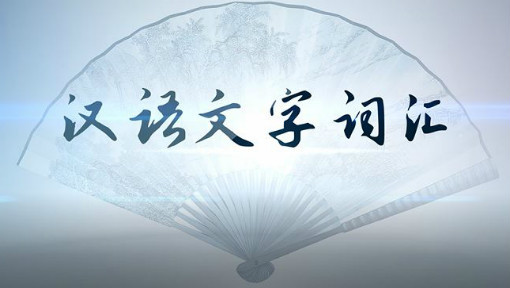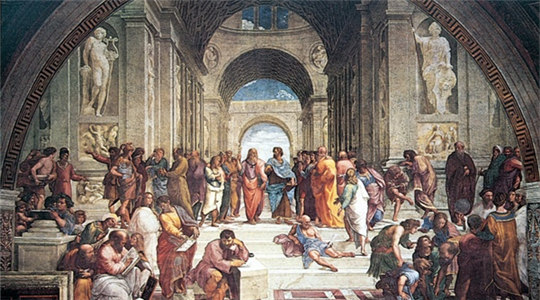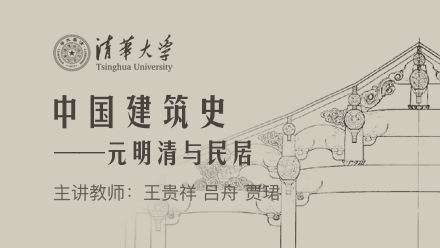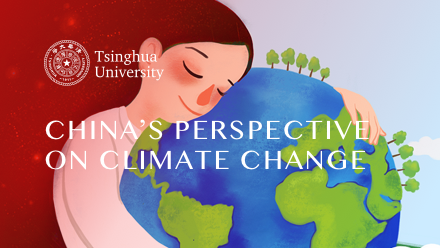
当前课程知识点:Plato, Socrates, and the Birth of Western Philosophy > Introduction(1)——Philosophy, Religion and Culture > 2.Definition and the History of Philosophy > Definition and the History of Philosophy
返回《Plato, Socrates, and the Birth of Western Philosophy》慕课在线视频课程列表
返回《Plato, Socrates, and the Birth of Western Philosophy》慕课在线视频列表
下面我讲一下哲学的定义
人们谈论哲学
经常用下定义的方式
但是不管他给出的是一个什么样的定义
基本上可以反映出
这个下定义者对哲学的看法
我们看到在哲学漫长的发展的历史中间
许许多多的哲学家
给出过哲学的定义
或者谈论过他们自己对哲学的看法
比如冯友兰先生
在《中国哲学简史》中说
又比如 爱因斯坦这位大科学家
他谈论过哲学
他说
我们看了爱因斯坦谈论哲学
就可以知道
他是在哲学与科学的关系中间
寻求对哲学的看法
又比如 十八世纪德国有一位
著名的浪漫派诗人诺瓦利斯
他给哲学的定义或者
他对哲学的看法非常独特
为什么我说他的这个定义比较独特呢
这就是因为 他实际上把哲学的活动
看作是一种精神还乡
或者是 建设 寻找
精神家园的这么一种活动
黑格尔 这位鼎鼎大名的哲学家
也谈过他自己对哲学的看法
他认为
黑格尔是德国古典哲学家
他自身建立过一个庞大的
客观唯心主义的哲学体系
他对哲学的看法值得我们参考
下面 我想把人们现在通常采用的
哲学定义给同学们做一个介绍
第一个定义
哲学是一种批判性的理论思维
提出这种看法的哲学家很多
马克思和恩格斯认为
人类把握世界有四种基本方式
第一种 它称作是理论的方式
我们随着同学们
对这门课的深入学习
我们可以知道
哲学的认识方式
就属于马克思所说的这种理论的方式
其它三种方式分别是
艺术的 宗教的 和实践的
这些方面在我们今后的课程中间
我们仍旧会不断地提到
这里我就不多说了
关于理论思维
恩格斯还说过这么一席话
恩格斯特别强调
一个民族要想站在科学的高峰
一刻也不能离开理论思维
另外 恩格斯还指出
理论思维是一种天赋的能力
要想发展和锻炼这种理论思维能力
只有一种办法
这就是学习以往的哲学
第二个定义:
哲学是对时代精神的反思
许多哲学家都认为
这句话就是哲学的一个重要的定义
为什么这么说呢
他们从人的本性去把握哲学的本性
人是动物 但人又不是动物
说人是动物
那是因为人和动物一样
都有他的基本的 生存的 生活的需要
说白了 对人来说
衣食住行
这是最基本的物质需要 生存需要
但是 如果这些需要基本满足了以后
人和动物不一样
人在这些物质生活基本得到满足以后
他还会有一种精神上的追求
还希望有一种精神生活 所以
哲学就是人们精神生活的一种需要
学习哲学有助于人们满足
他们的基本的精神生活的需要
定义三 哲学是对人文价值的继承和维护
人类社会经过漫长的发展
在各个不同的社会
都积淀了一些基本的价值
比如 公正 正义
比如 民主 富强 等等
这些基本的价值是人类社会维系的
一些基本的要素
哲学对于这些基本的人文价值
起着一种继承和维护的作用
我们经常说 中国人和西方人一样
他们的精神生活中间都有
对真 善 美 圣 的追求
哲学自从诞生以来绵延不绝
它的一个基本的原因就在于
人有这种追求精神发展的本性
有追求 真 善 美 圣
这些永恒的精神价值的本性
正是因为这是人的本性
所以我们说
哲学的本性也就在于
对这些真善美圣这一类价值的维护和继承
在这里 我顺便再说一下
学习哲学有什么意义
以往我接触的大量的学生
在学习哲学类课程的时候
经常会向老师们提出一个问题
哲学这门学问看起来很深奥 很玄妙
但是 这个哲学到底有什么用啊
我在面对这类问题的时候经常用
柏拉图回应他的一个学生的提问
的方式来回答 柏拉图在雅典
在公元前三世纪 四世纪的时候
就已经建立了西方第一所哲学学校
柏拉图学院
他在那里面对大量的学生
有一次 他在那里讲课
讲完课以后
有一位学生就上去对老师说
老师 您刚才讲的哲学我听了感到很好
但是 我想问 哲学有什么用
柏拉图听了这个学生的提问
他调转身子 对他的助手说
去 到账房先生那里
拿几个钱给这个学生 让他走吧
柏拉图的意思是 你要来学哲学
但是又马上追问学哲学有什么用
学了哲学能不能给你带来直接的经济利益
这样的学习目的是没有办法学好哲学的
所以 我们在面对这类问题的时候
我作为一名哲学教师
在面对这类问题的时候
我首先要告诉大家
学习哲学 它有它自己的作用
但是 它绝对不能够
立马给你带来实际的经济利益
那么 哲学有什么用处呢
我把它总结为三点
第一 学了哲学
掌握了批判的理性思维
这样的话 你就能够
升华你自己的个人经验
也能够吸取其他人的
包括你的前辈们的人生经验
以此指导你个人的学习和生活
学习哲学的第二点意义在于
学了哲学能使你变得聪明
我们用一句行话来说
学了哲学能转识成智
知识 现代人必不可免的
都会通过各种途径学到许多知识
但是这些知识能否转化为智慧
能否使你变得聪明
这里 你怎么学
就成了一个重要的问题
所以 学习哲学我们经常说
哲学是一门使人变聪明的学问
但是关键在于 你怎么学
学习哲学的第三点重要意义
我认为是 解决信仰问题
寻求精神支柱
信仰问题 精神问题
精神家园问题
这一类问题我们一般都在
谈论宗教的时候来加以讨论
但是 在我们这门课中间
我们在以后恰当的地方
还要详细地展开
三 什么是哲学史
哲学史顾名思义
那就是 哲学发展的历史
同学们生活在大学里
你们经常会看到
经济 经济学 经济学史
法律 法学 法学史
同学们要是按照这个思路推演下去
那么 哲学 哲学史
那么 什么是哲学史呢
哲学史就是哲学发展的历史
但是 这样的回答都还比较表面
都还比较肤浅 最早的
在哲学发展的历史中间
最早开始撰写以往哲学家
以往民族的思维发展的历史的时候
有些哲学家就是按照这个思路来写的
这样的哲学史著作就被黑格尔批评为
你是在把古人的思想僵尸化
你写出一部哲学史
就是在向古人的思想化石致敬
这样的哲学史是没有价值的
所以我们在理解哲学史的时候
还应当看到 哲学史的撰写者
自己有什么样的哲学观
他就会本着自己对哲学的理解
撰写出一部他自己的哲学史
而我们从哲学是一种批判性的
理性思维方式的这个角度去把握
所以我提醒同学们
在学习这门课程的时候
一方面 对于我们在课程中间所讲解的
古希腊罗马哲学家
他们的思想 他们的活动要有了解
但是更重要的是
通过了解他们的思想和活动
来分析把握他们的思维方式
以此为鉴 提高我们自己的思维能力
-1.Etymology
-2.Definition and the History of Philosophy
--Definition and the History of Philosophy
-3.Religion
--Religion
-4.Culture
--Culture
-5.Theory of Cultural Transformation and Interaction: Five theoretical premise
--Theory of Cultural Transformation and Interaction: Five theoretical premise
-6.Theory of Cultural Transformation and Interaction:Five Basic Position
--Theory of Cultural Transformation and Interaction:Five Basic Position
-7.The Significance of Theory of Cultural Transformation and Interaction
--The Significance of Theory of Cultural Transformation and Interaction
-Self-test Exercises
-Thinking Questions
-1.The Birth Environment of the Greek Philosophy(1)
--The Birth Environment of the Greek Philosophy(1)
-2.The Birth Environment of Greek Philosophy(2)
--The Birth Environment of Greek Philosophy(2)
-3.The Stages and Schools of Greek Philosophy(1)
--The Stages and Schools of Greek Philosophy(1)
-4.The Stages and Schools of Greek Philosophy(2)
--The Stages and Schools of Greek Philosophy(2)
-5.The Local Characteristics of Ancient Greek Philosophy and the progress of internationalization(1)
--The Local Characteristics of Ancient Greek Philosophy and the progress of internationalization(1)
-6.The Local Characteristics of Ancient Greek Philosophy and the progress of internationalization(1)
--The Local Characteristics of Ancient Greek Philosophy and the progress of internationalization(1)
-7.The termination of Ancient Greek Philosophy
--The termination of Ancient Greek Philosophy
-Self-test Excercises
-Thinking Questions
-1.A transition to rational thinking(1)
--A transition to rational thinking(1)
-2.A transition to rational thinking(2)
--A transition to rational thinking(2)
-3.A transition to rational thinking(3)
--A transition to rational thinking(3)
-4.A transition to rational thinking(4)
--A transition to rational thinking(4)
-5.Heraclitus’ thinking
-6.Parmenides’ thinking(1)
-7.Parmenides’ thinking(2)
-Self-test Excercises
-Thinking Questions
-1.Seeking the origin:the early philosophers(1)
--Seeking the origin:the early philosophers(1)
-2.Seeking the origin:the early philosophers(2)
--Seeking the origin:the early philosophers(2)
-3.Seeking the essence: Plato’s theory of Form (1)
--Seeking the essence: Plato’s theory of Form (1)
-4.Seeking the essence: Plato’s theory of Form (2)
--Seeking the essence: Plato’s theory of Form (2)
-5.Seeking to on: Aristotle’s ontology and metaphysics (1)
--Seeking to on: Aristotle’s ontology and metaphysics (1)
-6.Seeking to on: Aristotle’s ontology and metaphysics (2)
--Seeking to on: Aristotle’s ontology and metaphysics (2)
-Self-test Excercises
-Thinking Questions
-1.The lexical meaning
-2.Epistemology(1)
-3.Epistemology(2)
-4.Epistemology(3)
-5.Epistemology(4)
-6.The features
-Self-test Excercises
-Thinking Questions
-1.A lexical meaning(1)
-2.A lexical meaning(2)
-3.A lexical meaning(3)
-4.Plato’s Dialectics(authentic true)
--Plato’s Dialectics(authentic true)
-5.Aristotle’s Logics(judging true)(1)
--Aristotle’s Logics(judging true)(1)
-6.Aristotle’s Logics(judging true)(2)
--Aristotle’s Logics(judging true)(2)
-Self-test Excercises
-Thinking Questions
-1.A lexical meaning
-2.The occurrence and development of the ancient Greek Science(1)
--The occurrence and development of the ancient Greek Science(1)
-3.The occurrence and development of the ancient Greek Science(2)
--The occurrence and development of the ancient Greek Science(2)
-4.The occurrence and development of the ancient Greek Science(3)
--The occurrence and development of the ancient Greek Science(3)
-5.The occurrence and development of the ancient Greek Science(4)
--The occurrence and development of the ancient Greek Science(4)
-6.The occurrence and development of the ancient Greek Science(5)
--The occurrence and development of the ancient Greek Science(5)
-7.the technicalization and application of ancient Greek Science(1)
--the technicalization and application of ancient Greek Science(1)
-8.the technicalization and application of ancient Greek Science(2)
--the technicalization and application of ancient Greek Science(2)
-Self-test Excercises
-Thinking Questions
-1.A Lexical meaning
-2.Plato’s theory of Love
-3.The high praise to the love god: a reading on Symposium (1)
--The high praise to the love god: a reading on Symposium (1)
-4.The high praise to the love god: a reading on Symposium (2)
--The high praise to the love god: a reading on Symposium (2)
-5.The high praise to the love god: a reading on Symposium (3)
--The high praise to the love god: a reading on Symposium (3)
-6.The high praise to the love god: a reading on Symposium (4)
--The high praise to the love god: a reading on Symposium (4)
-Self-test Excercises
-Thinking Questions
-1.A lexical analysis
-2.The development of the Classic Greek Ethics(1)
--The development of the Classic Greek Ethics(1)
-3.The development of the Classic Greek Ethics(2)
--The development of the Classic Greek Ethics(2)
-4.The development of the Classic Greek Ethics(3)
--The development of the Classic Greek Ethics(3)
-5.The development of the Classic Greek Ethics(4)
--The development of the Classic Greek Ethics(4)
-6.From the ultimate goodness to the common goodness(1)
--VideoFrom the ultimate goodness to the common goodness(1)
-7.From the ultimate goodness to the common goodness(2)
--From the ultimate goodness to the common goodness(2)
-Self-test Excercises
-Thinking Questions
-1.A lexical meaning
-2.Ancient humanistic trend of thoughts(1)
--Ancient humanistic trend of thoughts(1)
-3.Ancient humanistic trend of thoughts(2)
--Ancient humanistic trend of thoughts(2)
-4.Ancient humanistic trend of thoughts(3)
--Ancient humanistic trend of thoughts(3)
-5.A theoretical summary
-Self-test Excercises
-Thinking Questions
-1.A lexical analysis
-2.The story of Gyges
-3.The Ancient theory of justice(1)
--The Ancient theory of justice(1)
-4.The Ancient theory of justice(2)
--The Ancient theory of justice(2)
-4.The Ancient theory of justice(3)
--The Ancient theory of justice(3)
-Self-test Excercises
-Thinking Questions
-1.An explanation to the related words
--An explanation to the related words
-2.A Platonic Republic
-3.Cicero’s people’s Republic(1)
--Cicero’s people’s Republic(1)
-4.Cicero’s people’s Republic(2)
--Cicero’s people’s Republic(2)
-Self-test Excercises
-Thinking Questions
-1.A lexical analysis
-2.The religious trends in the late period of ancient Greek philosophy(1)
--The religious trends in the late period of ancient Greek philosophy(1)
-3.The religious trends in the late period of ancient Greek philosophy(2)
--The religious trends in the late period of ancient Greek philosophy(2)
-4.The religious trends in the late period of ancient Greek philosophy(3)
--The religious trends in the late period of ancient Greek philosophy(3)
-5.The religious trends in the late period of ancient Greek philosophy(4)
--The religious trends in the late period of ancient Greek philosophy(4)
-6.The collision between faith and reason(1)
--The collision between faith and reason(1)
-7.The collision between faith and reason(2)
--The collision between faith and reason(2)
-Self-test Excercises
-Thinking Questions
-1.An explanation to the related words
--An explanation to the related words
-2.Communion with gods(1)
-3.Communion with gods(2)
-4.Communion with gods(3)
-5.Communion with gods(4)
-6.Plotinus’ mystical system of thoughts
--Plotinus’ mystical system of thoughts
-Self-test Excercises
-Thinking Questions
-1.The local characteristics of the ancient Greek Philosophy
--The local characteristics of the ancient Greek Philosophy
-2.The progressive universalization of the ancient Greek Philosophy
--The progressive universalization of the ancient Greek Philosophy
-3.The basic spirits of the ancient Greek Philosophy(1)
--The basic spirits of the ancient Greek Philosophy(1)
-4.The basic spirits of the ancient Greek Philosophy(2)
--The basic spirits of the ancient Greek Philosophy(2)
-Self-test Excercises
-Thinking Questions





